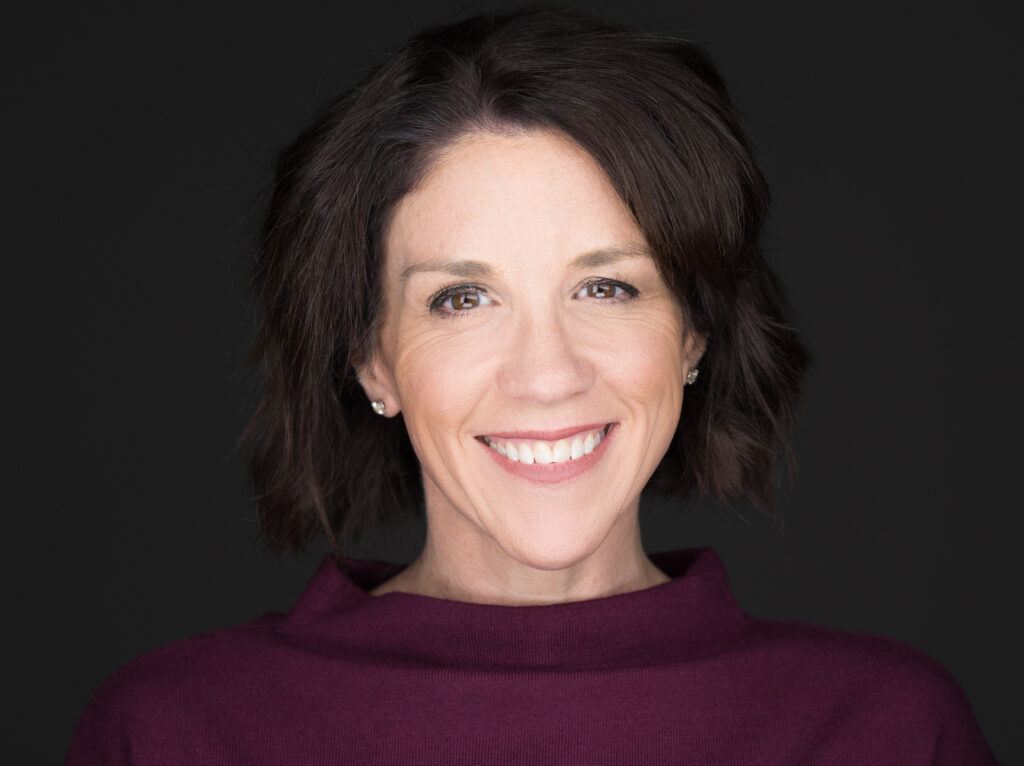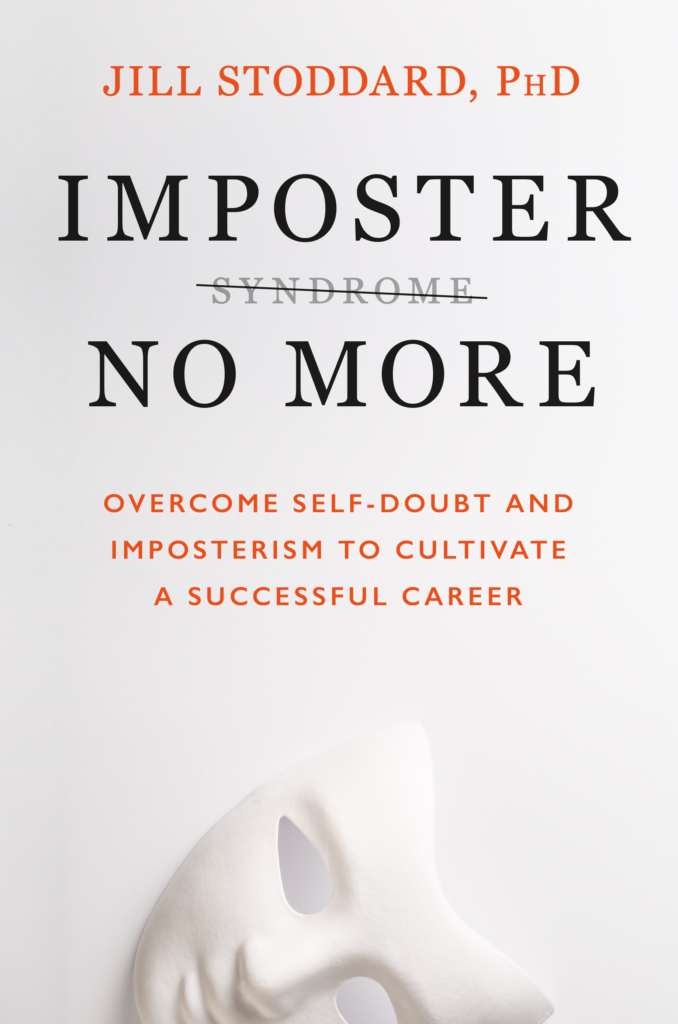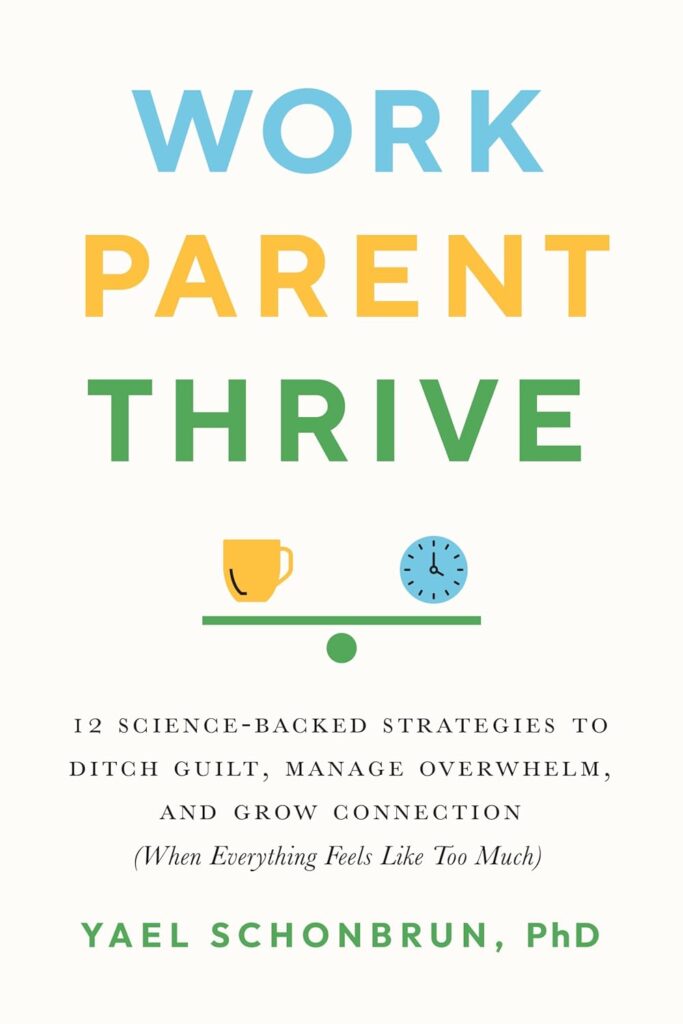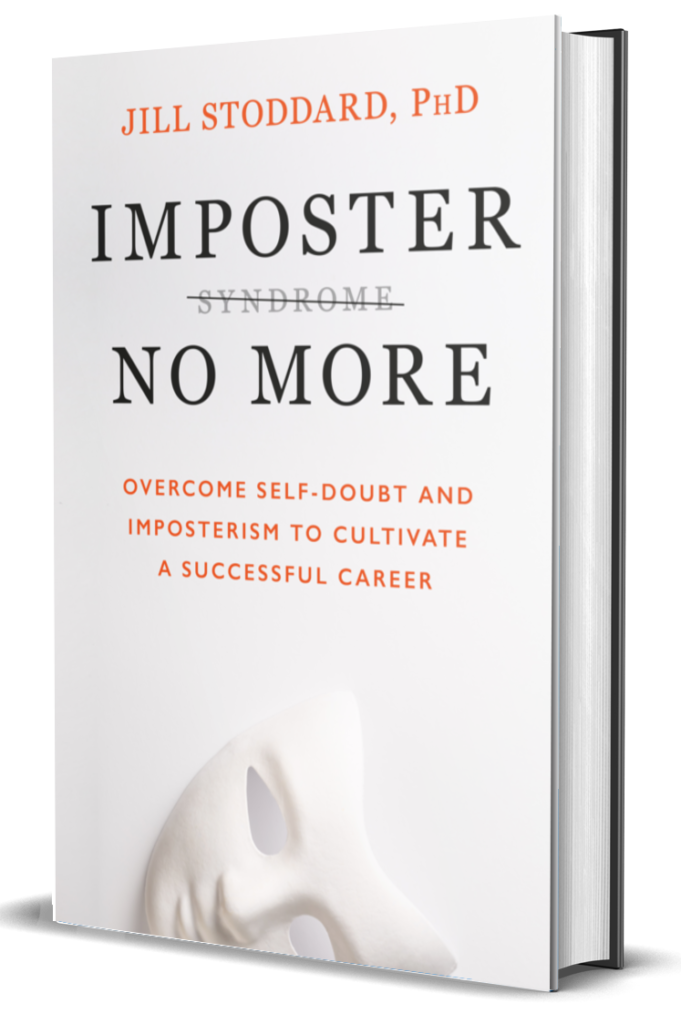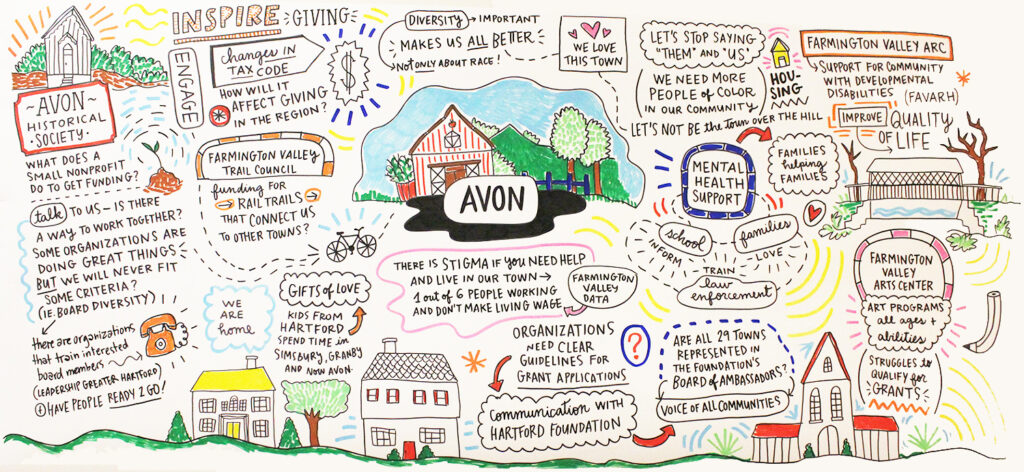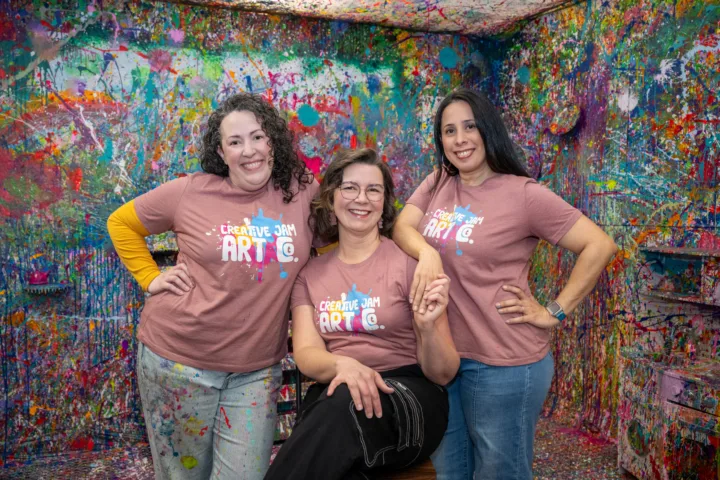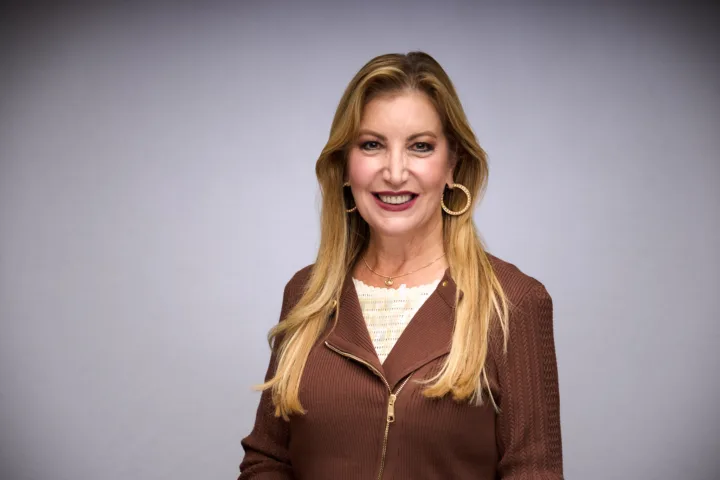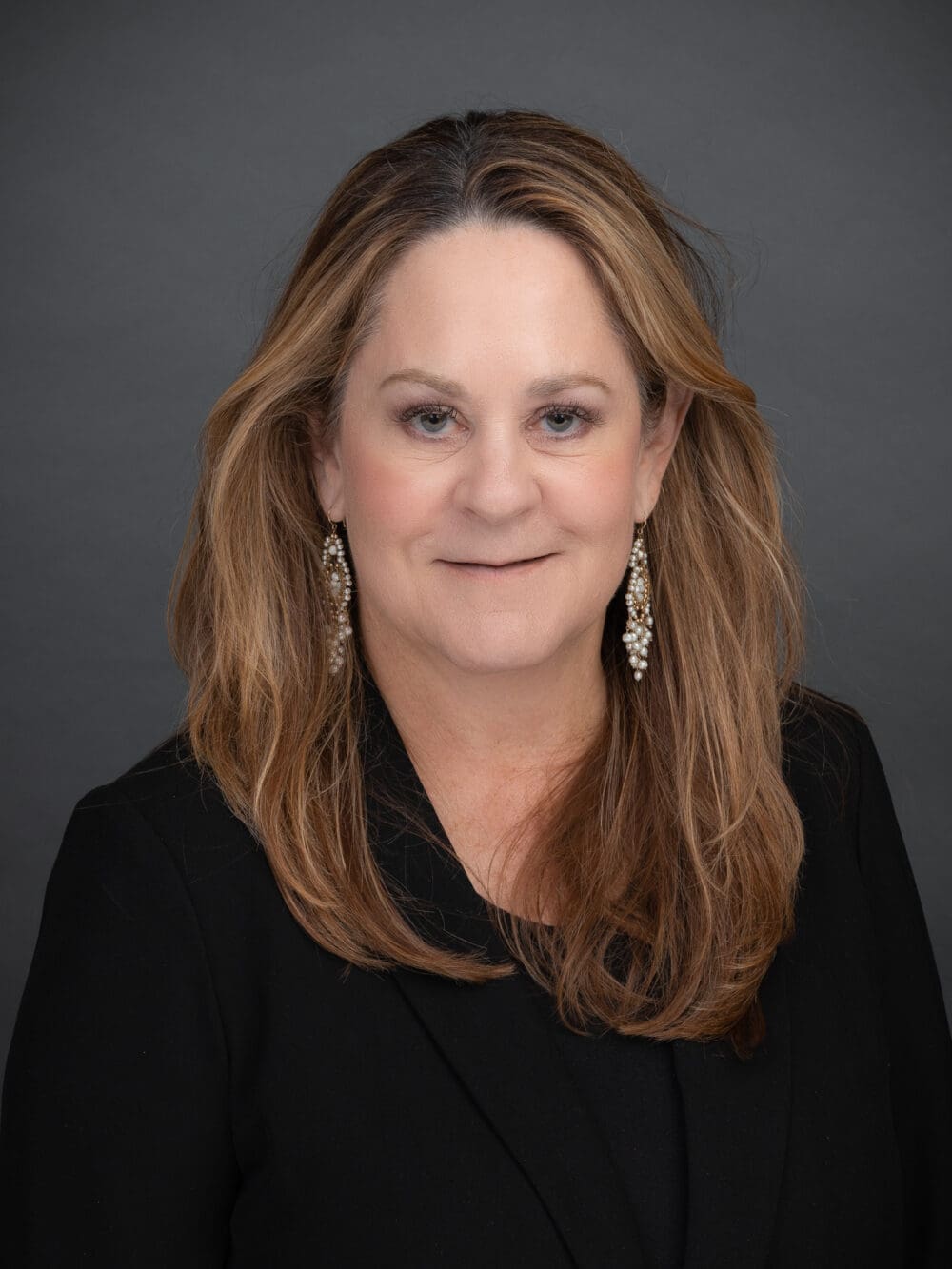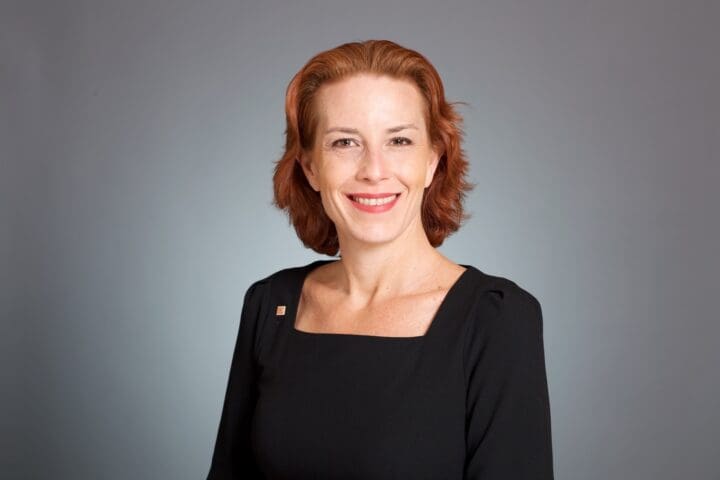Dr. Jill Stoddard is an esteemed figure in psychology and the acclaimed author of “IMPOSTER NO MORE: Overcome Self-Doubt and Imposterism to Cultivate a Successful Career.” She is more than just an expert in her field; she’s a pioneer in addressing women’s nuanced challenges in the modern professional landscape.
Holding a Ph.D. in psychology, Dr. Stoddard has devoted her career to exploring the depths of human emotions, focusing mainly on self-doubt and imposter syndrome. Her approach is grounded in solid research and clinical practice and radiates a profound empathy that resonates with her audience. As a celebrated speaker and thought leader, Dr. Stoddard has taken her message beyond the confines of academic circles, directly reaching out to those needing guidance and inspiration.
“IMPOSTER NO MORE,” Dr. Stoddard’s seminal work, tackles an issue that strikes a chord with many, especially women striving to find their footing in demanding careers. During our interview, she shared insights from the book, an amalgamation of psychological theory and actionable advice crafted to help readers break free from the shackles of doubt and self-imposed limitations. Her ability to distill complex psychological concepts into relatable and practical wisdom makes her writing exceptionally impactful.
In our conversation, Dr. Stoddard explained everything from the heart of her book, sharing her motivation for writing and the transformative journey she envisions for her readers. Her book is celebrated for its academic rigor, empathetic tone, and empowering message. It’s a beacon for those seeking to understand themselves better and navigate their professional lives with confidence and authenticity.
Dr. Jill Stoddard’s “IMPOSTER NO MORE” contribution is a game-changer, especially for working women. Her insights provide solace, motivation, and practical tools for personal and professional development. Her passion for empowering individuals, particularly women, shines through in her work, making her a true inspiration in psychology and beyond.
✿ Thank you for reading!
Subscribe to be our bestie, no spam—just good vibes once a month.
I’d instead go too deeply into the specifics of “IMPOSTER NO MORE” here because it’s a journey best experienced firsthand. The book is a treasure trove of insights, from exploring the metaphor of a Disco Ball to discussing the Four Ps Strategy and covering a spectrum of topics like Decision Making, Role Modeling, Habits, Goals, and Achievements. So, let’s hear directly from Dr. Stoddard herself.
Please meet Dr. Jill Stoddard, make yourself a coffee or tea, read, absorb, and transform because this interview will change your mindset.
Pinar Ozyigit
Dr. Stoddard, first of all, congratulations on the book. I read Imposter No More two times on my iPad with hundreds of lines highlighted. I found myself talking about it with my friends. As an immigrant who started a new life in the US 10 years ago, I saw myself in your words. Can you explain how you came up with the idea for this book?
Thank you so much, Pinar. I love hearing about readers highlighting passages (!) and especially about seeing themselves in the book. Have you ever heard the phrases “research is me-search” or “your mess is your message?” Well, that’s how I came up with the idea for the book. It wasn’t so much that I felt like an imposter when I started my career and got into a competitive graduate school program where my father knew the director (an origin story I share at the beginning of the book), but the fact that after all these years and many accomplishments, I still feel like I didn’t deserve that spot and often feel like an imposter. It made sense to feel inadequate when I started out, but I thought for sure accumulating successes would fix it-–the fact that it didn’t made me interested to understand why and to share that with others who might be struggling in similar ways.
Working women can effectively combat imposter syndrome using the fantastic principles you outlined in the book. To begin, can you explain what strategies you suggest for women to find their values and understand themself in their professional and personal lives?
Values identification is a huge part of the book and central to cultivating psychological flexibility, the antidote to imposterism. I think the best way to sum up values concisely is to say values are the Me you want to be in each present moment. Notice how the word ‘moment’ contains the word ‘me’ right in the middle (moMEnt)?
That is how we begin to think about making choices that are values aligned. In each present moment, who do you wish to be, and how do you want to show up? What qualities will you choose to embody? Will it be assertive, kind, thoughtful, authentic, playful, present, persistent? So often we make reactive, autopilot choices based on wanting to avoid discomfort. Making choices based on values means showing up as the Me you want to be even if it feels uncomfortable. Values are our ‘why.;’
Do you have a recommendation about how women can ensure that their path to career advancement aligns with their core values?
Typically, there are two big obstacles to making values-consistent choices: uncomfortable feelings (like anxiety, fear, uncertainty, or self-doubt) and a loud inner critic (Who do you think you are? You’re not good enough. etc). We don’t control that we have these difficult internal experiences (in fact we’ve been programmed by 100’s of 1000’s of years of evolution to have them) but we do get to choose how we respond to them. Learning to get comfortable being uncomfortable and to detach from unhelpful thoughts rather than treating them like dictates we must follow allows us to more effectively choose values. In other words, we can change our relationship to thoughts and feelings so that we are no longer being bossed around by them when it doesn’t serve us.
How about gender differences? Can the values-based approach help women navigate and challenge gender biases in the workplace?
Gosh, I hope so! I can’t promise that a values-based approach will actually change a woman’s work environment—that would be an outcome and outcomes are largely out of our control. But we can choose how to navigate biased waters based on our values nonetheless. So what might this look like? If you value equality and social justice, you might name bias even when you feel afraid it won’t go over well. You might speak up when Russ takes credit for Rita’s work or is given credit for repeating something she just said, even if you worry Russ might hold it against you.
You might actively lift up other women even when you worry there aren’t enough opportunities to go around. You might talk openly about your salary and ask your colleagues about theirs (research shows this is one way to close the gender pay gap) even if it feels taboo. Living by our values means doing what feels right even when it feels hard. Of course some people work in genuinely hostile environments where speaking up may have intolerable consequences. If you value safety or self-preservation, you may choose to prioritize those values and not speak up even if you also value equality.
Loneliness has been shown to be more deadly than cigarette smoking! Having a mentor is a way of building a small village. Having a mentors can lift you up when you’re feeling insecure.
What role does mentorship play in helping women overcome imposter syndrome and stay true to their career values?
To me, mentorship is one way of cultivating community and relationships. We are evolutionarily programmed to need other people (early humans who hunted, gathered, and traveled together had a survival advantage), and contemporary research has shown the most robust predictor of our overall physical and mental health and well-being is the presence of quality relationships, in fact, loneliness has been shown to be more deadly than cigarette smoking!. Having a mentor or mentors is a way of building a small village. Having a mentors can lift you up when you’re feeling insecure. They can remind you of your value, and they can remind you of your valueS when you get off track. Being a mentor can remind you how much you know and have to offer. Plus, research shows giving to others boosts happiness!
What insights do you offer those striving to integrate their professional and personal lives?
I guess I first want to validate that this is HARD. We are living in an interesting era where women are told they can have it all professionally but are still taking on the lion’s share of unpaid, domestic and caregiving responsibilities. Until this balances out, having a full personal and professional life might be impossible–there are literally not enough hours in the day. For those who are in romantic partnerships where there is not an equal distribution of household and caregiving labor, I highly recommend Eve Rodsky’s book Fair Play: A Game-Changing Solution for When You Have Too Much to Do (and More Life to Live).
This is how I freed up my time so I could finally integrate my personal and professional lives (and it literally saved my marriage!). Speaking up and claiming your time will be hard, whether it’s at home or setting boundaries at work. I probably sound like a broken record at this point, but this is what values-based living looks like. What you get in return is so, so worth it. For working parents, I also recommend Dr. Yael Schonbrun’s book Work, Parent, Thrive: 12 Science-Backed Strategies to Ditch Guilt, Manage Overwhelm, and Grow Connection (When Everything Feels Like Too Much). She does a beautiful job of demonstrating how our personal and professional roles can actually enrich one another.
How can we apply values-based decision-making to negotiate effectively in male-dominated industries?
My answer here is similar to the one above about gender bias in the workplace. “Negotiate effectively” suggests we will be able to say something just right that will result in a desired outcome. Of course this does often happen, but not always. Outcomes (like the results of a negotiation) are largely out of our control. But we can choose to show up to a negotiation embodying qualities like assertiveness, persistence, self-respect, professionalism, honesty, etc. Wanting to avoid discomfort like anxiety, fear, and self-doubt may threaten to make us quiet and small. We can learn to make space for these feelings, aka get comfortable being uncomfortable. And choose to show up as the ME, we most deeply desire to be–one who chooses to negotiate even when we’ve been socialized not to and feel deeply uncomfortable doing so.
I do want to acknowledge, though, that research shows women suffer a likeability penalty when they negotiate, so we are not mistaken to worry about the consequences of doing so. Ideally, organizations and systems will change so this is no longer the case, but we all know how that goes (i.e., even if it goes, it goes at a snail’s pace!) So in the meantime I think change needs to be a grassroots effort where women and allies get brave and do the individual values-based work of negotiating for ourselves and each other.
Imposter No More mentions how critical self-care and self-compassion are. Can you explain why they are vital for working women to achieve professional growth?
To me, self-care means choosing to live by values that might look like saying no, asking for help, establishing boundaries, or putting ourselves first even when it feels hard. This type of self-care means learning to make space for guilt and the feelings that come with a sense of obligation or prioritizing ourselves, and not letting avoidance of those feelings drive our decisions. Self-care might look different for each of us, but it’s hard for almost all of us-–especially as women who have been socialized to put everyone else’s needs above our own.
The book encourages women to challenge traditional career paths using a values-driven approach. That was one of the most significant points you mentioned. What do you think about using our values to address and overcome inequality or unfair treatment at work?
There are many strategies to control our inner critic, but my favorite is naming the inner critic. Mine is called Sheila, and when she gets loud, I say to her, “I hear you, Sheila, I get that you’re trying to protect me, but I’ve got this.”
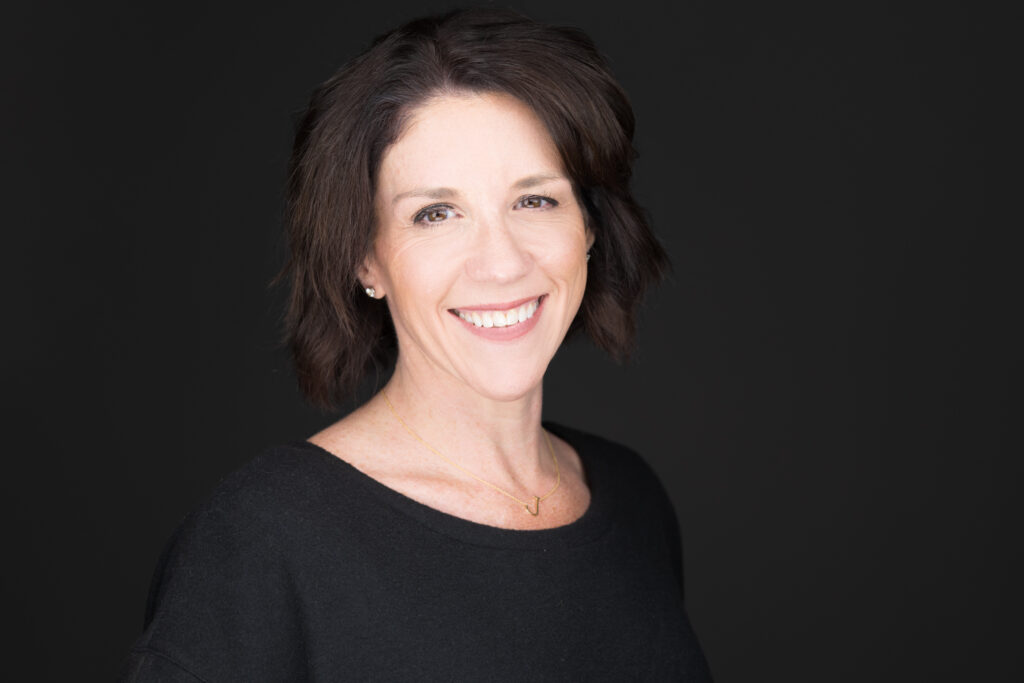
How about handling criticism and feedback in professional settings? And, of course, managing our internal critics that we carry like luggage is essential. Is there any way to control her and silence her as well?
Let me start with the inner critic: no, we can’t silence her. We all have one, and she is there to try to protect us from failure, humiliation, and rejection.
Unfortunately, she’s extra cautious even when she doesn’t need to be. Evolution has programmed the inner critic to stay. What we can do, though, is change our relationship to her so she is not in charge of what we choose to do or not do.
There are many strategies for this, which I outline in the book, but my favorite is naming the inner critic. Mine is called Sheila, and when she gets loud, I say to her, “I hear you, Sheila, I get that you’re trying to protect me, but I’ve got this.” Sometimes, though, the inner critic might have a point. For example, when Sheila tells me, “Jeez, you sure have been on your phone a lot and haven’t been setting a very good example for your kids. Some mother you are!” There is a nugget of truth to that. So I take the nugget and get off my phone because this is in line with my values. What I don’t do is ditch my family and move to Aruba because Sheila is telling me I’m a terrible mother and my kids would be better off with me–that would not be in line with my values (though I wouldn’t mind a week alone in Aruba!).
Receiving feedback in professional settings is much the same. Our initial, autopilot reaction will likely be defensiveness. We detect a threat and respond accordingly. What I recommend is taking 1-2 slow, deep breaths to get present before responding (this will feel like an eternity, but trust me, it’s not). This creates space where a thoughtful, values-based choice can be made. Make space for your feelings (aka get comfortable with the uncomfortable. Maybe you feel misunderstood or angry–that is normal. You can feel it and choose not to respond from that place). Take the nuggets, if there are some. Then choose how you want to show up to this interaction. What qualities do you want to embody? Is the Me you want to be defensive? Probably not. When I receive feedback I want to show up as open, willing, present, and professional. If I feel it’s important to provide input in opposition to what is being said, I might take a beat and wait to do so until I can do it thoughtfully and non-defensively–in other words, in a values-consistent manner.
To me, Imposter Syndrome is like a hidden monster that grows when there is a change, especially when we are out of our comfort zone. How can women leverage their values when considering significant career transitions or changes?
You are spot on! Imposterism loves to arise when we are doing something new. And this makes sense–of course we are going to question our competence when we are at the start of a learning curve. And this may be especially true if we are venturing into a space where we have been told we don’t belong, like women in STEM, finance, or law enforcement, for example (and any history of marginalization can create greater vulnerability to imposter thoughts and feelings at any career stage). Change is uncomfortable because it is uncertain. That darn evolution has programmed us to hate uncertainty too because knowing whether a plant or animal was dangerous had a survival advantage!
This “problem” of uncertainty, though, is unsolvable–you can’t know whether your career transition is going to work out. You just can’t. So what can you do? Observe and make space for that uncertainty. Here’s the thing–it’s just a feeling. I don’t say that to be invalidating, but to remind you that feelings can’t hurt you and you can handle them. Human brains have a negativity bias–they overestimate the likelihood bad things will happen, and underestimate our ability to cope. In reality, the bad things typically don’t happen and even if they do, they are never as bad as our mind predicts and we can handle them. So if you’re scared to make a change, get in touch with your values and let them be your guide. Maybe you value growth, courage, skill building, perseverance, adventure, challenge–this can be your ‘why’ for moving forward in the presence of fear and uncertainty.
How can we become more aware of our values to empower women in their professional journeys, especially when dealing with imposter syndrome?
There are so many fun ways to do this, and I outline several in the book, but my favorite is to choose a person who lives by their values in much the same way you would like to. This can be someone you know (a coach or grandparent), someone you feel like you know (a celebrity), or even a fictional character. Then when you are faced with a choice that feels hard (e.g., should I move forward with this scary and uncertain career pivot or stay in my job that is known and has a stable paycheck even though I feel stagnant and uninspired?), you can ask yourself what that person would do.
So for me, this person is Oprah Winfrey because Oprah has faced many obstacles in her life–poverty, racism, sexism, abuse, body shaming–and has never let it stop her. She is ambitious, persistent, brave, authentic (at least so it seems), and uses her money and power to leave the world a better place than she found it. These are qualities I want to embody in my life too. So when I am faced with a choice that feels hard, I ask myself WWOD: What would Oprah do? I also like to take that a step further and ask WWOS: What would Oprah say if she knew I was struggling to make this choice? Oprah is the reason I did a TEDx talk–a bucket-list professional goal of mine- despite immense fear, self-doubt, and insecurity about my body, a story I tell in the book.
My last question is, can you please tell me 5 Don’t Do This and 5 Do This bullet points for women who struggle with Imposter Syndrome? So we can all note them on our new 2024 planners with a note, “What would Jill do?’
DO:
1. Do get in touch with the Me you want to be. What are your values–the qualities you want to embody as you navigate work and life?
2. Do learn to make space for discomfort. Practice getting comfortable being uncomfortable.
3. Do detach from and observe thoughts for what they are–sounds, syllables, & images–and what they are not–truths with a capital T.
4. Do practice self-care and self-compassion–this stuff is hard and takes time to learn, be kind to yourself.
5. Do build a community. It really does take a village.
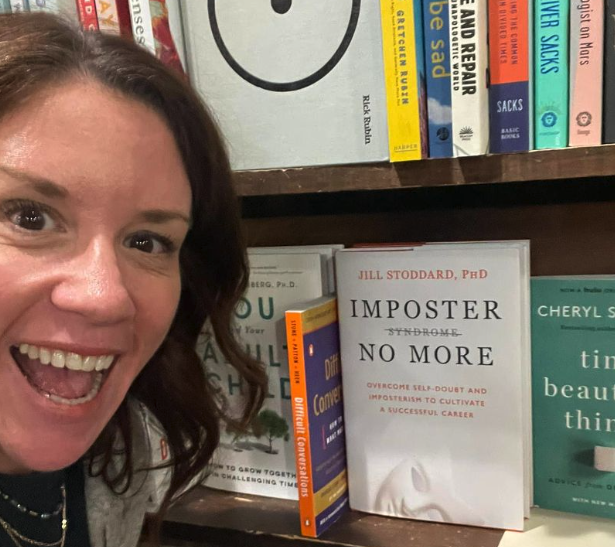
The last book:
Currently halfway through Maame by Jessica George. Before that, one of Freida McFadden’s many twisty-turny psychological thrillers.
The last TV show:
I am currently binge-watching all 19 seasons of Gray’s Anatomy. Currently on Season 9.
The last movie:
The Marvels. The sacrifices we moms make for our littles.
Favorite song:
Purple Rain by Prince lately, but it changes occasionally.
The last travel:
Southern California for a great conference and to visit friends. I lived in San Diego for 25 years and just moved back “home” to Massachusetts last year.
Favorite dessert:
I actually can’t eat anything high in sugar because I had gastric bypass surgery 3 years ago.
So I love one small square of Ghirardelli peppermint bark after a meal.
Connect with Dr. Jill Stoddard
Jill’s main website:
www.jillstoddard.com
Jill’s speaker website:
www.thewellbeingspeakers.com
Jill’s podcast:
Psychologists Off the Clock
www.offtheclockpsych.com
Jill’s CA therapy
practice website:
www.csamsandiego.com
Jill’s LinkedIn:
@jillstoddardphd
Jill’s Instagram
@jillastoddard
Shortcuts to Questions & Answers
Disclaimer: The views and opinions expressed in this interview belong solely to the interviewee and do not reflect the official views of She.Work or its team. This interview is shared in a Q&A format to highlight the personal story and lived experience of the individual. It is not a research article or a verified report. At She.Work, we provide a space for women to speak in their own voice, and we honor those voices as part of our mission to amplify women’s journeys. We do not fact-check personal opinions or individual claims unless the interviewee provides specific names or details that require verification. Our goal is to respect each woman’s truth as she shares it.
✱ If you liked this article, please share it with a friend who could use inspiration.
If you have a topic in mind or a story to share anonymously or with your name, email us at team@she.work

